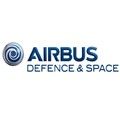-
StatusOngoing
-
Status date2014-08-14
Objectives
The aim of this development, covered by ARTES 3-4 Programme, is to design, analyse, manufacture and test an Engineering Qualification Model compatible of KA-Band mission in a double deployment configuration including two 2,6 meters reflectors.
In order to be competitive, the objective is also to select a design that leads to a Ka-band reflector cost similar to a Ku-band reflector cost.
Challenges
The main challenges are :
- The accommodation of two 2.6 meter reflectors in double deployment configuration
- The mechanical behaviour of the reflector
- The surface accuracy.
Benefits
The main benefits of the contract are the following:
- Accommodation and design of the 2.6m internal and external reflectors for a double deployment configuration on the Spacebus and E3000 platform;
- Complete characterization of the shell material compatible with Ka-band mission;
- Qualification of Ka-band reflector (acoustic, sine, thermal, thermo elastic, RF);
- Correlation of the models that provide valuable inputs for the prediction of future commercial reflector behaviour under environmental tests;
- An improved backing structure design to offer stiffener modal behaviour;
- Embedded carbon inserts co-cured in the composite parts to avoid metallic parts;
- A dismountable arm offering a possibility of late customization of the RF mission;
All these improvement ensure a significant reduction of manufacturing cycle and cost saving while guarantying high and accurate performances.
Features
The proposed reflector concept is based on the Ultra-Light reflector technology developed by Astrium ST. The reflector will be composed with a shell compatible with Ka-band mission linked to the spacecraft via a modular backing structure.
Plan
The development is divided in 2 phases which descriptions are given hereafter.
- The phase 1 was a characterisation of the shell and of the backing structure/shell junction and a preliminary assessment of the reflector design for the internal and external reflector.
- The phase 2 led to the final design, manufacturing and test of the EQM reflector.
Current status



